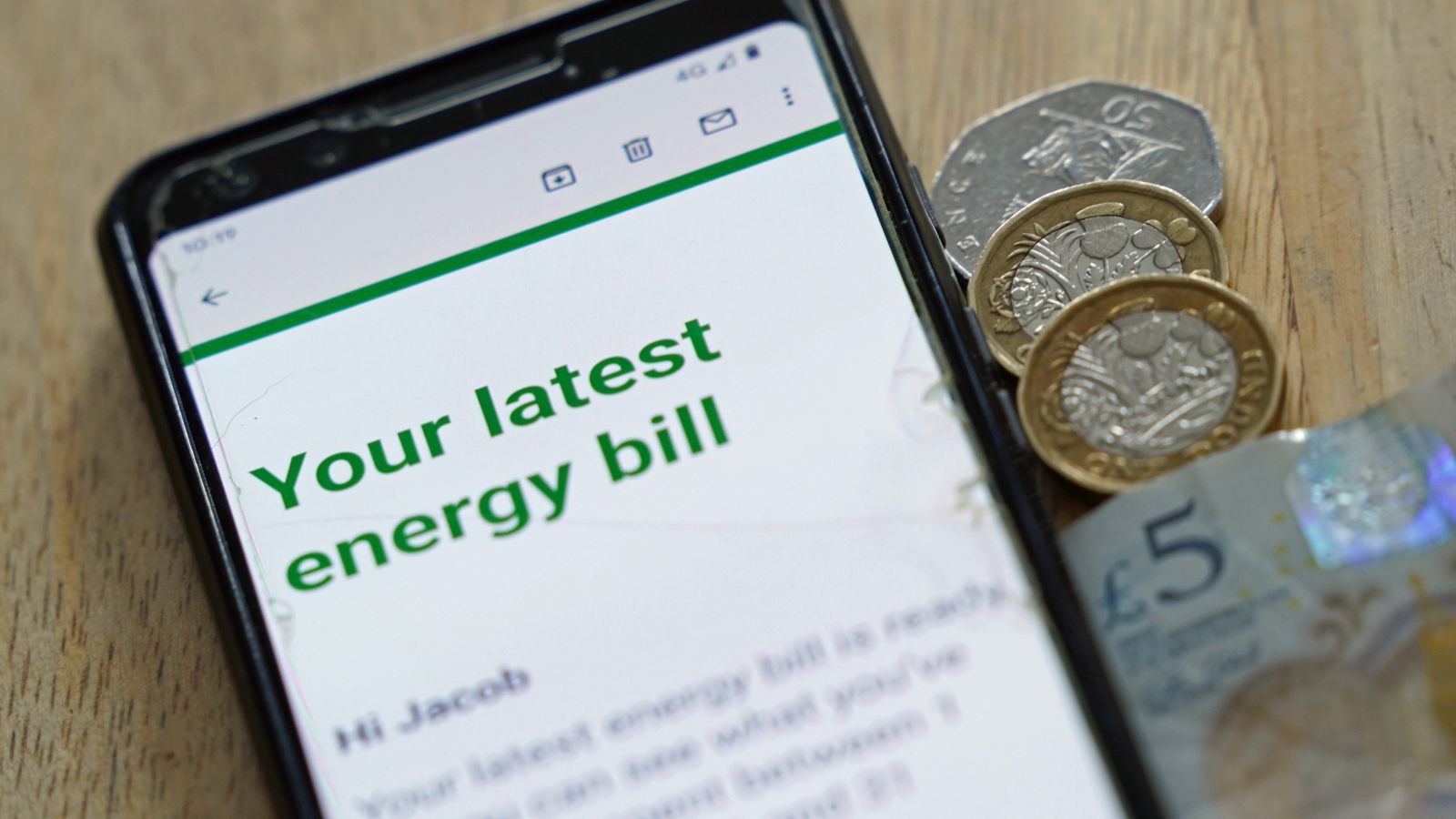The energy price cap, the mechanism that determines gas and electricity bills for 22 million households, could soon be reviewed every three months under plans announced by the industry regulator.
Ofgem revealed that it was putting the idea out to consultation amid criticism that the current twice-yearly adjustment arrangement – in April and October – had contributed to the failure of suppliers last year at the height of the wholesale gas price shock.
The cap, which was credited with shielding families from the worst of the COVID-linked hikes in raw energy costs, prevented companies passing on the unprecedented increases to their customers.
It delayed the impact from the most damaging element of the cost of living crisis that has seen households forced to swallow unprecedented rises in one go, with the average bill rising by 54%, or £693 annually, from April to £1,971.
The latest forecasts suggest bills could rise to almost £2,600 in October when the next price cap adjustment is due – reflecting the impact of Russia’s war in Ukraine for the first time.
Ofgem said its proposals would enable greater agility: allowing bills to rise or decline more quickly.
“A more frequent price cap would reflect the most up to date and accurate energy prices and mean when prices fall from the current record highs, customers would see the benefit much sooner.
Minister says people should work more hours or move to a better job to protect themselves from cost of living surge
‘I work more than 60 hours a week – I don’t know what more I can do’: People in Wigan say they are struggling
Saudi oil giant Aramco’s profits rocket by 80% fuelled by Ukraine invasion
“This change would also help energy suppliers more accurately predict how much energy they need to purchase for their customers, reducing the risk of further supplier failures which ultimately push up costs for consumers.”
It has previously admitted that this proposal would have meant prices going up ahead of the recent April rise but the consultation means that no cap adjustment is imminent.
Please use Chrome browser for a more accessible video player
Ofgem said it planned to bring in the changes from October, so households would see no impact from an update until 1 January under the plans.
They also include an effort to ensure that consumers are able to reap the benefits of falling gas prices more quickly, Ofgem added.
The regulator said: “This is all part of a range of plans to make the market fairer and more resilient, such as stress tests for suppliers and a more robust scrutiny of supplier business plans.
“Ofgem also recently wrote to suppliers to alert them to a series of market compliance reviews to ensure, amongst other things, that they are handling direct debits fairly, and that overall, they are held to higher standards for performance on customer service and protecting vulnerable customers.”
The energy price cap is currently the largest single driver of inflation in the UK which is tipped by economists to take a leap forwards this week when the figures for April are released.
The price cap surge means the consumer prices index measure could exceed 9% – a 40-year high according to forecasts – from the current level of 7%.
The Bank of England warned earlier this month that the impact of the growing cost of living crisis risked the UK entering recession by the year’s end, with inflation topping 10%.
The promise of a slump in living standards has prompted calls from business, oppositions parties and unions for an emergency budget.
Please use Chrome browser for a more accessible video player
PM Boris Johnson last week promised action within “days” but there has been little sign chancellor Rishi Sunak is preparing for further, targeted, support imminently.
He has refused to rule out the idea of windfall taxes on energy companies contributing to any further taxpayer aid.








